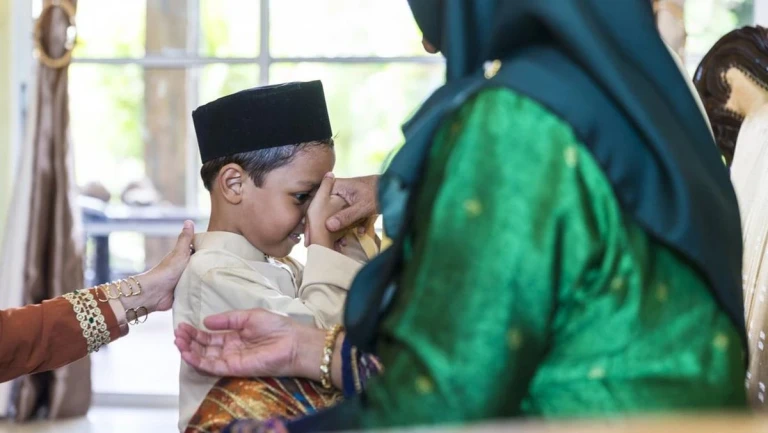
Many are familiar with the golden rule of conduct: "Treat others as you would like to be treated." Agree that most people want to be treated with respect and kindness. Are politeness and tactfulness popular in Indonesia?
In the past, ethical principles were dictated by religion. But over time, religious norms became outdated for society, and people's lives became more often defined by modern standards. Nowadays, the hospitality and politeness of the Indonesian people are gradually losing their strength. This has been influenced by Western culture and the lack of ingrained manners from an early age.
In this article, we will discuss the general standards in Indonesia, my own observations, and also the experience of my friends from Russia, who have spent a lot of time in this country.
Culture and etiquette
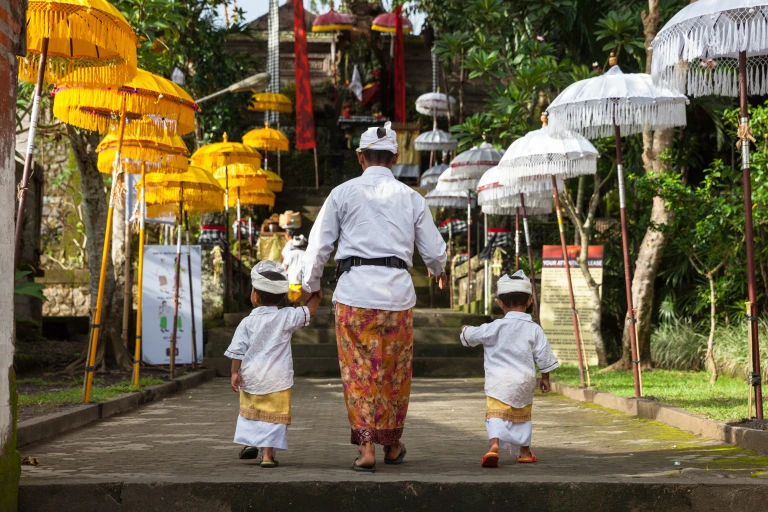
Indonesia, despite its various cultures, ethnic groups, and religions, still strictly upholds the ethics of mutual respect and tolerance towards each other. Ethics serve as a bridge between culture and religious values.
Behavior norms, for example, seem ingrained in Javanese culture; they simply cannot behave otherwise, as it naturally comes to them to be polite and kind. Of course, this does not mean that Indonesia is a paradise without evil. No! Here, too, there is arrogance, indifference, and crime, as in the rest of the world.
Culture and etiquette in each region of Indonesia have differences and are often contradictory, but the goal remains the same - to create a safe and comfortable social environment. In one locality, ethical standards may be accepted, but in another culture, rejected. However, the evaluation of culture and etiquette is measured based on the good behavior of people in that area. In Indonesia, there are four types of ethics norms.
Religious norms
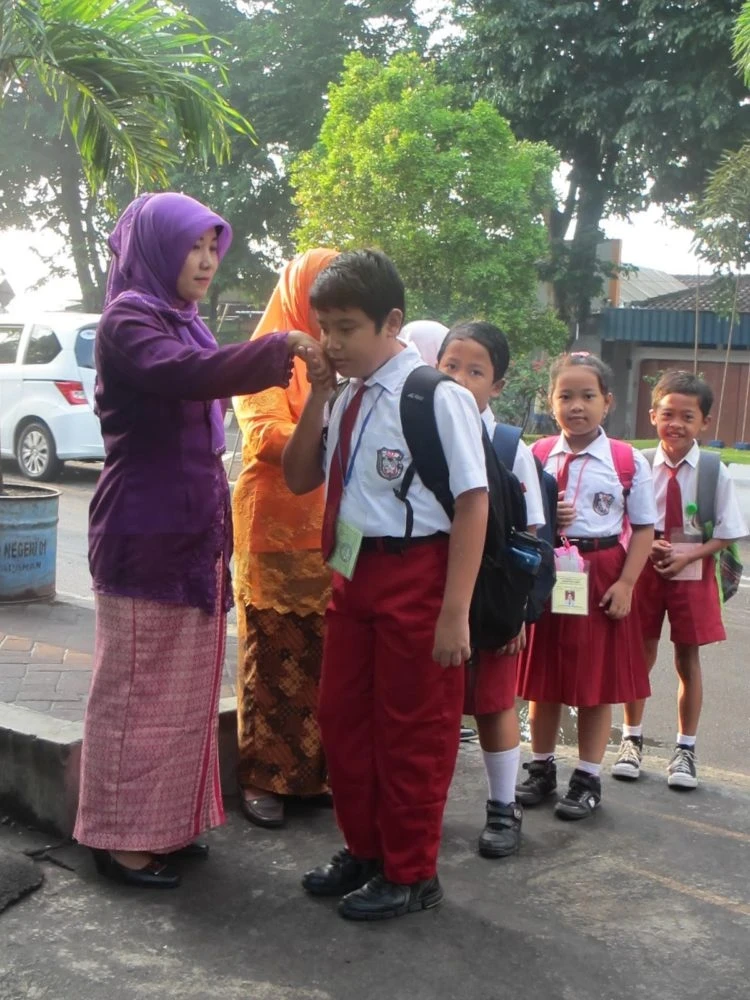
A person should behave in accordance with the teachings of their religion. Regardless of the religion, there are guiding principles that people must adhere to.
Examples of religious norms:
❃ In Islam, children greet adults by taking their hand, slightly leaning forward, and resting the adult's hand on the child's cheek.
❃ Before entering the temple, everyone removes their shoes and washes their feet. Therefore, during worship, hundreds of sandals can be seen at the entrance. Muslim clothing is modest, with long dresses for girls and women, covering almost the entire body.
❃ The well-known hijab or penghalang, which is similar to a scarf, meaning a barrier or curtain in Arabic, covers the woman's head and shoulders, except for her face.
The hijab demonstrates established norms of decency and modesty that Muslims must observe in their clothing, behavior, and relationships. This applies to both women and men, who must also wear modest clothing that does not cling to the body. For men, wearing trousers that are not shorter than the knees is allowed. Or long skirts, opaque shirts. With modest clothing, Muslims want to show respect for Allah and themselves, as well as protect themselves from prying eyes and temptations.
❃ Selling and consuming alcoholic beverages is prohibited. Therefore, in Indonesia, especially in Java, drunkenness or alcohol consumption on the streets is not encountered. Of course, there are alcohol enthusiasts, but they apparently hide, not attracting attention.
Norms of politeness
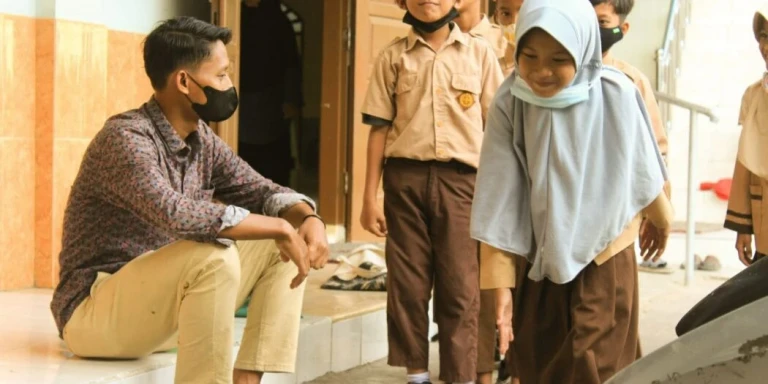
Polite behavior in Indonesia has been ingrained in the culture since ancient times. Although the new generation is learning to respect elders and greet people according to age, not everyone is ready to live by parental teachings. Nevertheless, the majority of people and youth in Indonesia remain committed to norms of politeness and obedience.
Let's consider examples of politeness:
❃ During a friendly gathering, Indonesians usually sit on the floor or on a thin mat in a circle, converse, and eat. And if someone wants to stand up and pass between those sitting, they should slightly lean forward, extending their hand parallel to their body, creating a kind of line to alert others and avoid stepping on anyone's feet. At the same time, they say: "Permisi," which means: "Excuse me."
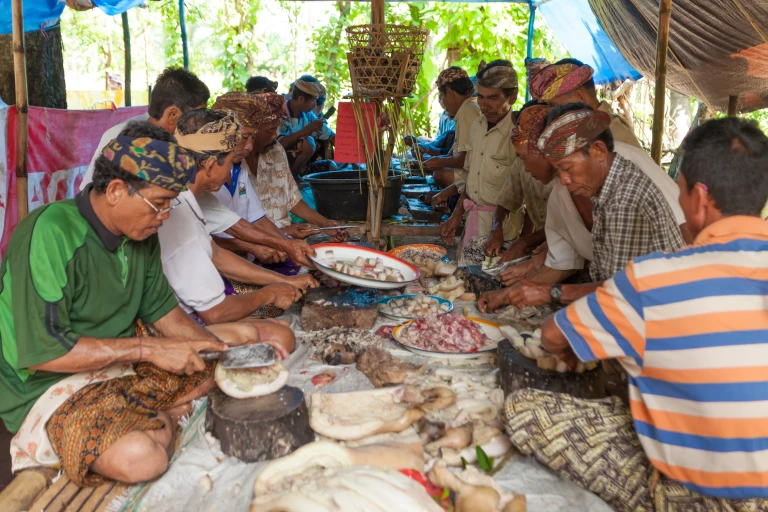
When people send a message to a seller or address a young girl in a store, they say: "Hi, kakak" or abbreviated 'kak,' which means - "Hello, older sister." This shows good manners. And to an older person, they say: "Selamat siang, bapak, ibu," which means: "Good afternoon, father, mother."
❃ Also, during a feast, when someone wants to serve food to someone else, they must do so with their right hand because Indonesians consider the left hand dirty as it is used for washing after visiting the toilet.
❃ Any person or child, when they want to leave somewhere, must bid farewell to friends, parents, showing respect. In this case, children say: "Bapak, ibu, aku pamit ya?" Which means: "Father, mother, I'm saying goodbye, okay?"
❃ During shopping, when Indonesians want to ask a seller about a product, they don't point with their index finger, but rather with their thumb sideways, laying the hand down resembling a fist. Or when people show directions, they also point with their thumb to the destination.
❃ To create a good society, Indonesians are encouraged to communicate with their neighbors, to help each other. In the book "Ethics of Neighborliness," Hetti Restianti explains that friendly relations with neighbors are like voluntarily sacrificing one's own small freedom for the sake of others.
❃ Indonesians even refer to themselves not by name or with the word "I" or "me," but always in the third person. For example: instead of saying "I'm going," they would say "mom is going to the store."
❃ Parents set an example for their children by emphasizing the importance of acknowledging their mistakes and apologizing to anyone. Also, when someone needs help from others, before making a request, they say: maaf or tolong, which means excuse me, please.
❃ In Javanese society, the local language is used in different variations - Ngoko, Kromo alus, Kromo inggil, depending on who the person is addressing. Young people should use the Kromo language towards the elderly, regardless of social status, position, or wealth. Another form of Javanese language is used for people of a younger age.
❃ In the past, when Indonesians met elderly people, they would bow their heads as a sign of respect. Now, this habit has been abolished.
Norms of Decency
You can recognize a decent person by looking at their actions, done with a good conscience (or, as Indonesians say, bisikan kalbu, suara hati, which means the whisper or voice of the heart).
In Indonesia, it is customary to express oneself kindly and not to hurt the feelings of others. Dressing according to the norms of modesty and respect for others. Norms of decency are aimed at maintaining harmony and order in society.
Examples of decency in Indonesia:
❃ When entering people's homes, Indonesians say: Permisi or in Javanese: Kulonuwun, and when meeting the host of the house, they greet them, but do not call people by name. They refer to someone as senior, madam, miss, young man. Even if you take a married couple, the wife addresses her husband as "mas," which means sir, showing respect.
❃ Indonesians, especially in Java, respect boundaries, do not violate human rights, and do not enter a house without permission.
❃ Intimate relationships with a partner are prohibited until they officially become husband and wife. In the world, this is considered an old-fashioned rule, but in Indonesia, there are cities where this can be punished.
❃ If your ordered food is served in a warung and suddenly you change your mind, it is not polite to cancel the order, Indonesians consider this indecent.

❃ When being treated to food, tea at an Indonesian's house, under no circumstances should you refuse. It's disrespectful. And even if you are full, it's better to thank and eat at least a piece of something, drink a little tea, showing gratitude for the host's generosity.
❃ Indonesians respect all religions and do not hinder others from worshiping.
Legal laws
Unlike natural norms, legal norms are one of the mandatory rules established to maintain safety. Those who violate the law, violate someone else's honor and dignity, commit something illegal, will face sanctions, punishment in accordance with the existing legislation.
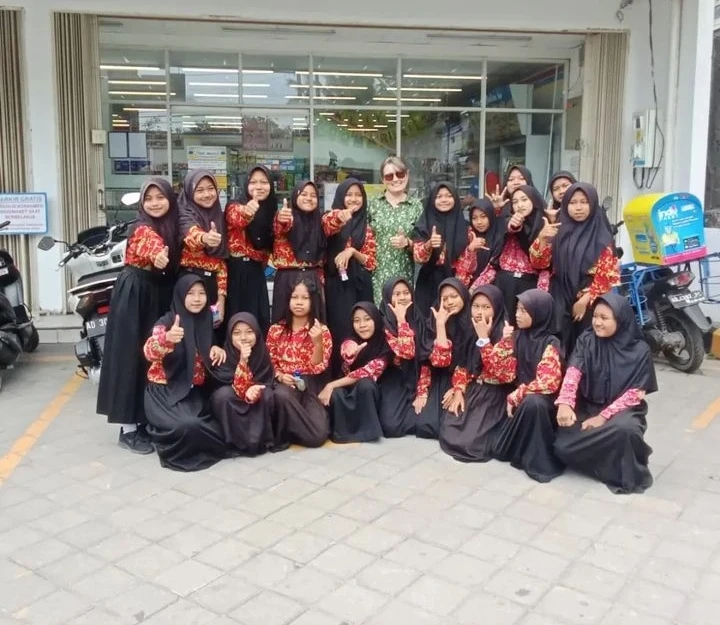
Law enforcement in Indonesia starts from the family, school, play environment, and governmental life. From school age, Indonesian students are expected to:
- Wear clothing or uniforms recommended by the school (the color and style of clothing may vary in each city).
- Be polite to teachers and other school staff.
- Not lie to friends, teachers, and other people.
- Respect differences with other religions.
Of course, in Indonesia, like in any other country, not everyone adheres to established laws. However, obedience and decency have not yet disappeared. Personally, I have noticed in Java that there is more kindness and decency here than anything bad.
Workplace Ethics

Norms are developed specifically for each profession and institution.
Ethical rules in the workplace:
- Dignified appearance.
- Maintaining cleanliness, both in clothing and on the desk.
- Respecting colleagues.
- Ability to listen without interrupting the speaker.
- Separating personal life from work.
And indeed, wherever we go, whether it's a bank, supermarket, or other institutions, employees always treat us with respect, patience, and kindness. We have never encountered rudeness or irritation from Javanese people.
In general, each of us can make ourselves and the world even better by acting correctly and kindly towards everyone.
Bali Etiquette
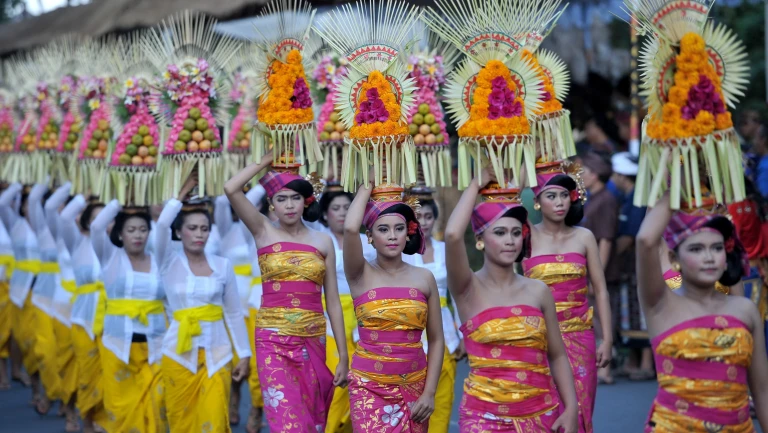
In Indonesia and Bali, laws apply to all citizens, not just locals. The provincial government has faced several incidents involving foreign tourists during their travels in Bali. According to Indonesian laws, every visitor to the country must respect the rules and customs of the place they visit. Guests are warned about this even at the airport.
One of the Balinese customs of respect for the Universe is the creation and placement of offerings in the form of flowers and incense wrapped in banana leaves, called "chanang sari." Local communities dislike it when foreigners accidentally or intentionally step on and destroy these offerings.
Rules for visiting temples and during ceremonies
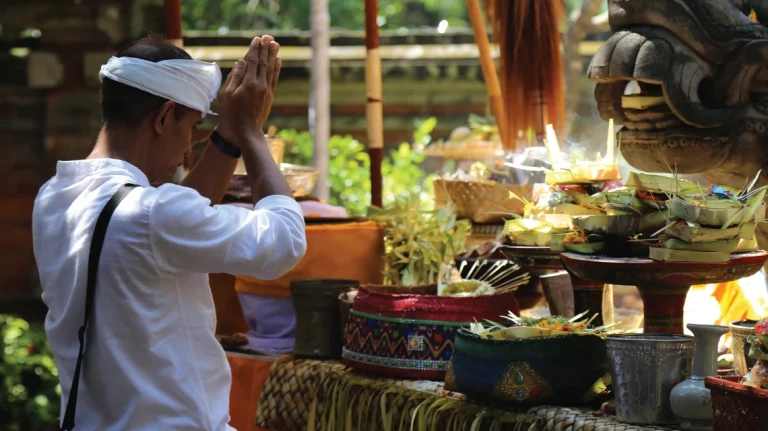
Temples are places of worship for Hindus. There are many tourist attractions on the island of Bali located close to each other.
❃ Therefore, if tourists are near a temple, it is necessary to wear modest clothing. Women are also prohibited from entering temples during their menstrual cycle.
❃ Tourists should always behave properly, considering that religious events in Bali may take place not only in temples but also in public places, such as on the beach. Don't be surprised if a procession of people carrying religious attributes passes by your resting place.
❃ Ceremony organizers don't like it when they are disturbed, when people shout loudly, or play music. All attendees, even casual passersby, should pause for a moment or walk slowly, following the officers' instructions. The same applies to solemn processions along the beach.
❃ It is necessary, as much as possible, to avoid intentional, indecent sounds and actions that may disrupt the ceremony.
Norms of behavior in the 4 Balinese castesl

Bali is famous not only for its natural beauty but also for its rich history and culture, which have their own norms and ethics. One of the important aspects of Balinese culture is the caste system, which has existed for centuries. It originates from the Hindu religion (Hinduism, as in India).
In Bali, there are four castes (Brahmana, Kshatriya, Vaishya, and Sudra), which play a central role in societal life. In fact, these castes have influenced everyday life and fundamentally altered traditional ceremonies and religious rituals. The caste, or color, system is a grouping of people based on their profession, talents, and skills.
The Brahmana caste is the highest, representing priests. The Kshatriyas include warriors, kings, and scholars. The Vaishyas are traders and government officials. At the fourth and lowest position is the most numerous Sudra caste, consisting of farmers and common people, making up about 90 percent of Bali's population. A person can be demoted in caste if they make mistakes.
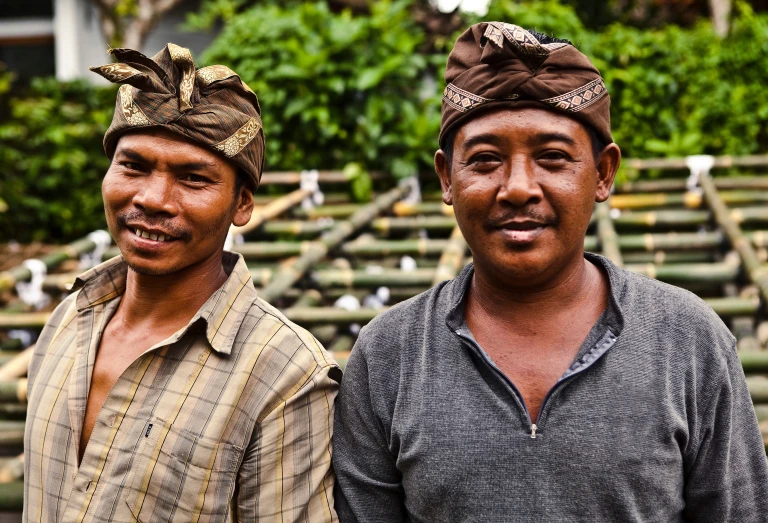
Ethics in Hinduism is called "susila." Su means good, and sila means the habit or behavior of a good person. In Hinduism, ethics is regarded as a science that studies the system of values, determining what should be done or avoided to create good relationships among people. Mature Balinese individuals also approve of those who sincerely strive for spiritual knowledge from a young age and need the guidance of a teacher.
From childhood, Balinese children are taught to remain good people, not to be lazy, and not to waste time while they are young, using it beneficially, which determines the quality of their future lives. They also learn mutual respect, tolerance, and the preservation of unity.
Balinese people greatly hope that guests to the country will respect local traditions, observe ethical norms, and display good manners. This will help create harmonious relationships between tourists and the Balinese community.
It is also important to pay attention to etiquette when interacting with local residents. Most Balinese people use polite words and maintain sincere and warm facial expressions to avoid hurting the feelings of those around them. This serves as an example for all of us to follow. Even if we don't know the local language, smiles and warm greetings are enough to show respect. And when traditional ceremonies or certain Hindu festivals are held, avoid things that are considered rude or disruptive to the ceremony.

The people of Bali, who live within a caste system, greet each other with the phrase "Om Swastiastu" when entering a temple as a sign of respect, which is also expected from the island's guests.
Sacred objects should not be used for commercial or inappropriate purposes.
Observe ethical norms when attending traditional ceremonies such as Melasti, Ngaben (day of death), or Piodalan (offering).
Maintain cleanliness in the environment around the temple and avoid damaging sacred decorations and structures.
Do not behave provocatively or consume alcoholic beverages during ceremonies or in plain view of others.
Touching - a sign of disrespect

According to Balinese traditions, it is prohibited to touch the heads of Balinese people because they believe that the head is the most sacred part of the body. In many Asian societies, including Indonesia, touching someone's head is considered impolite. It is especially forbidden to pat the head of a small child.
Of course, sometimes patting the head of a small child is simply a gesture expressing love and tenderness. However, only parents are allowed to touch the heads of their children.
You can add one right now!